11 Things Emotionally Exhausted People Start Avoiding Completely
They don't have a lot of extra energy or effort left to exert.
 AliceCam | Shutterstock
AliceCam | Shutterstock A study from Psychiatry Investigation found that workers in high-stress and emotional jobs, like nursing or firefighting, who are more prone to traumatic events often experience higher levels of emotional exhaustion. Not only can these further feed into experiences like chronic stress, burnout, and depression, they tend to isolate people from healthy rituals, relaxation, and social connections and relationships.
While things like resilience and healthy mental health rituals can help to fend off emotional exhaustion and the stress, anxiety, and turmoil it cultivates, like a study from the International Journal of Mental Health Nursing suggests, there are still several things emotionally exhausted people start avoiding completely when they make a turn toward burnout. In many cases, they can't help it — they don't have anymore space in their brain to share or emotional energy to offer to others in these scenarios.
Here are 11 things emotionally exhausted people start avoiding completely
1. Social events
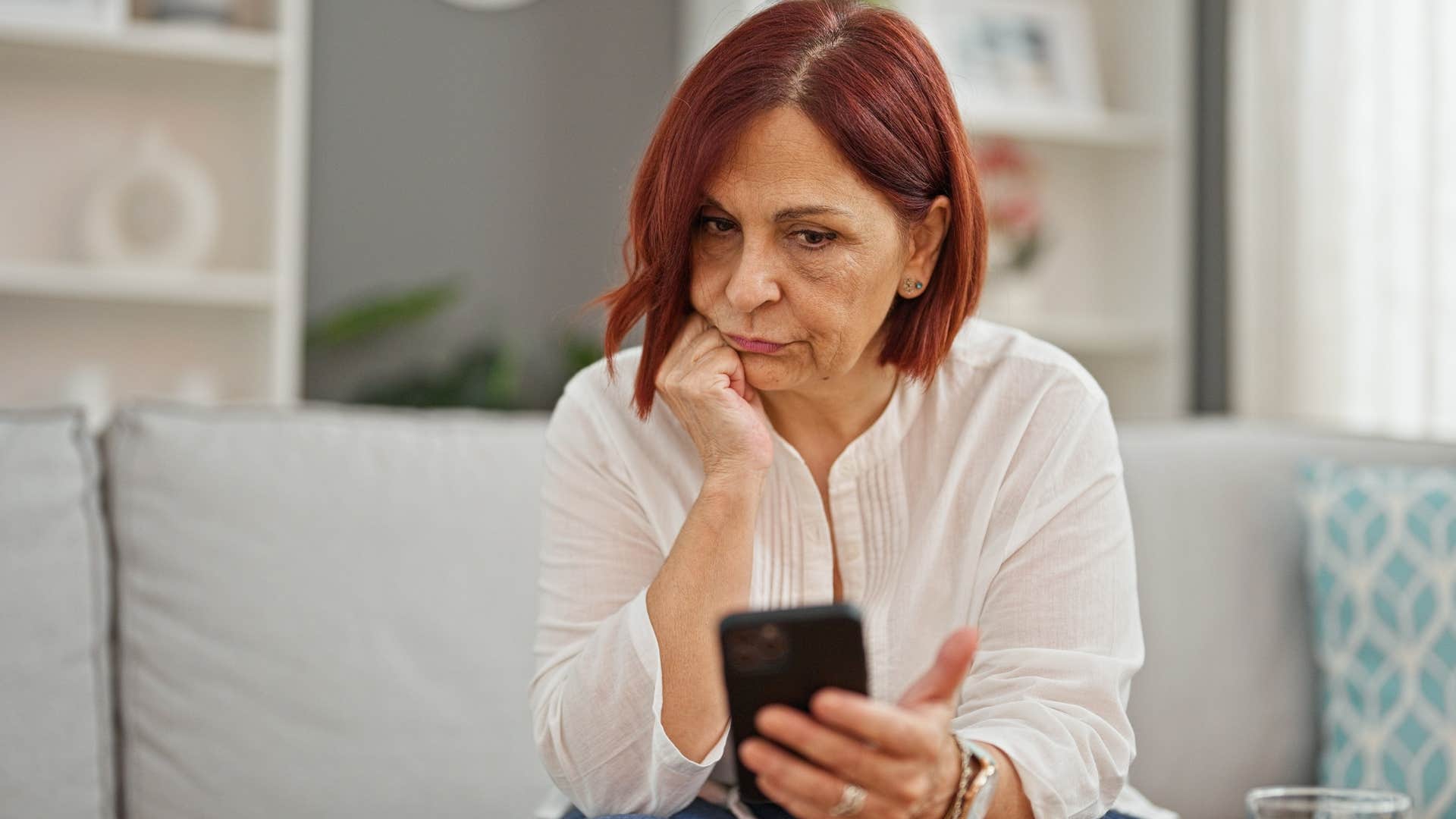 Krakenimages.com | Shutterstock
Krakenimages.com | Shutterstock
Many people experiencing emotional exhaustion can't help but to adopt introverted habits, even if they find a lot of joy from interacting with other people and cultivating new relationships. These events, get-togethers, and last-minute plans are things emotionally exhausted people start avoiding completely.
Of course, the link between depression and emotional exhaustion partially explains this phenomenon. According to a study from the Journal of Counseling Psychology, people experiencing depressive symptoms often view social interactions as inherently negative — a partial reflection of their views toward themselves — and avoid them to cope with internal discomfort and turmoil.
It's not that they're not being fulfilled by social interactions, they just start avoiding them completely, unable to reap their benefits, to misguidedly cope with complex emotions, insecurity, exhaustion, and anxiety.
2. Helping people
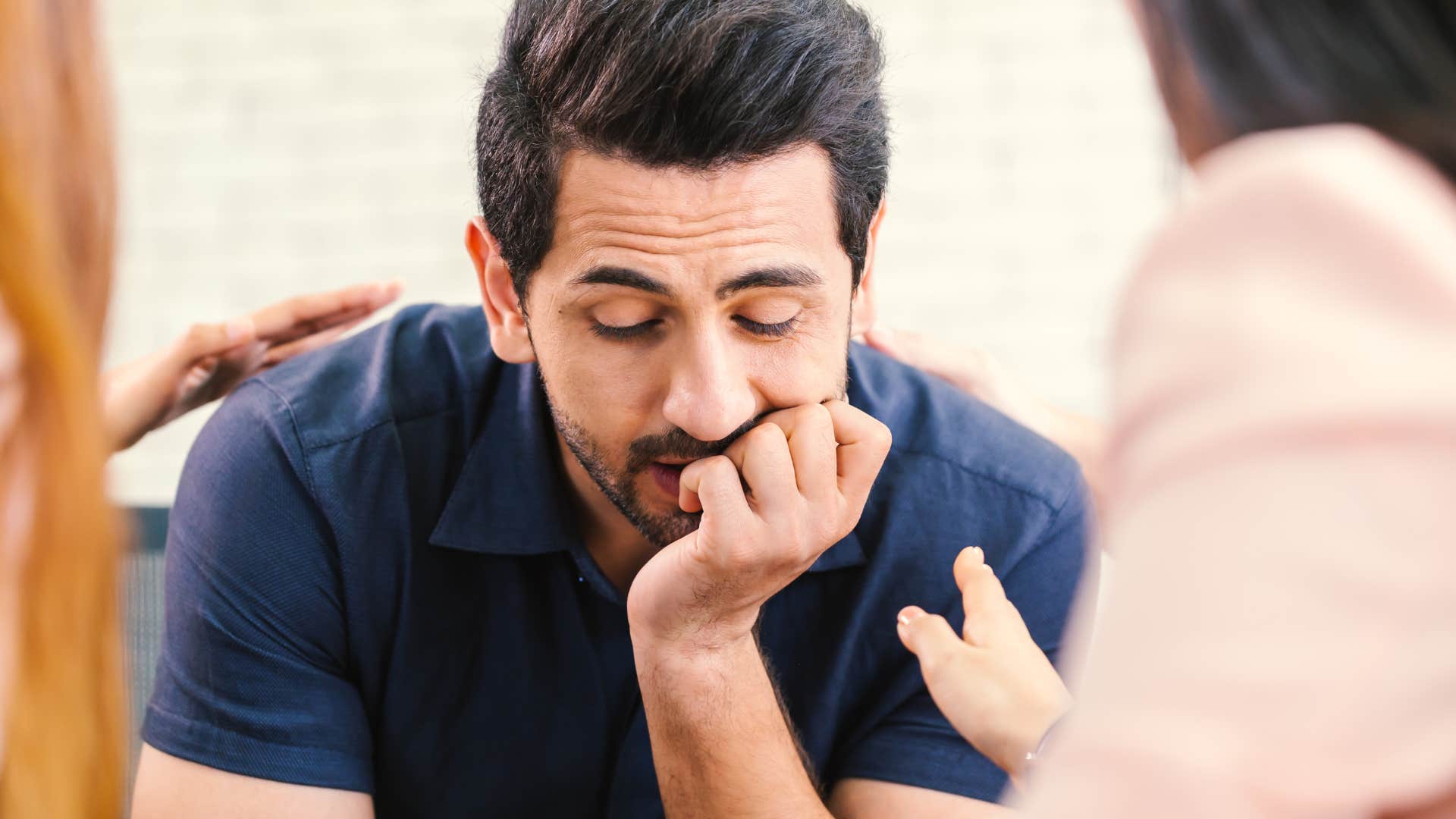 Butsaya | Shutterstock
Butsaya | Shutterstock
According to a study from the Canadian Veterinary Journal, many people experiencing "compassion fatigue" also tend to develop emotional exhaustion as a side effect — isolating themselves from social interactions, helping others, and investing in their relationships in a more present way.
Compassion — a person's desire to alleviate another's hurt or suffering — is one of the first things to falter when someone is experiencing chronic stress or emotional turmoil, alongside general empathy and sympathy.
Even though there are a number of benefits to offering and receiving help from others, they're so fatigued by traditional burnout symptoms when it comes to assisting others and sharing their emotional and mental capacity that they avoid it completely.
Especially for workers in high-stress fields or individuals from tumultuous homes, they may burn out faster — struggling to offer compassion or kindness to other people in the face of their own burnout symptoms, which is why it's one of the things emotionally exhausted people start avoiding completely.
3. Making decisions
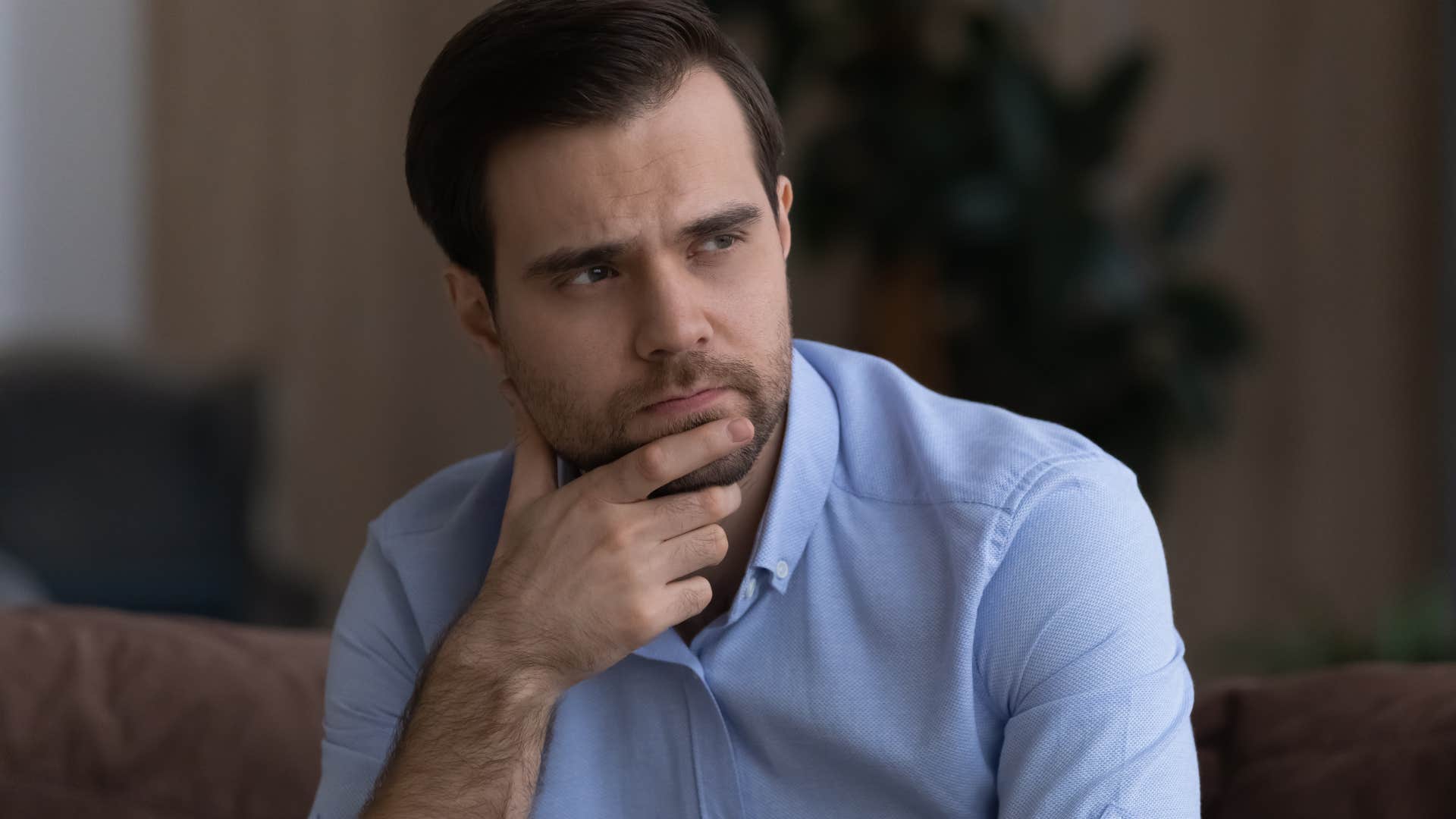 fizkes | Shutterstock
fizkes | Shutterstock
Oftentimes, things like making decisions, thinking deeply, or dealing with conflict consistently in your life spark periods of intense emotional regulation, like a study from the Journal of Health Psychology explains, that also cultivate exhaustion.
That's why things like making big decisions are one of the things emotionally exhausted people start avoiding completely when they're experiencing burnout and chronic stress. They can't focus enough, exert the critical-thinking skills and energy needed, or communicate effectively, making a truly healthy and honest decision that much harder.
4. Digital communication
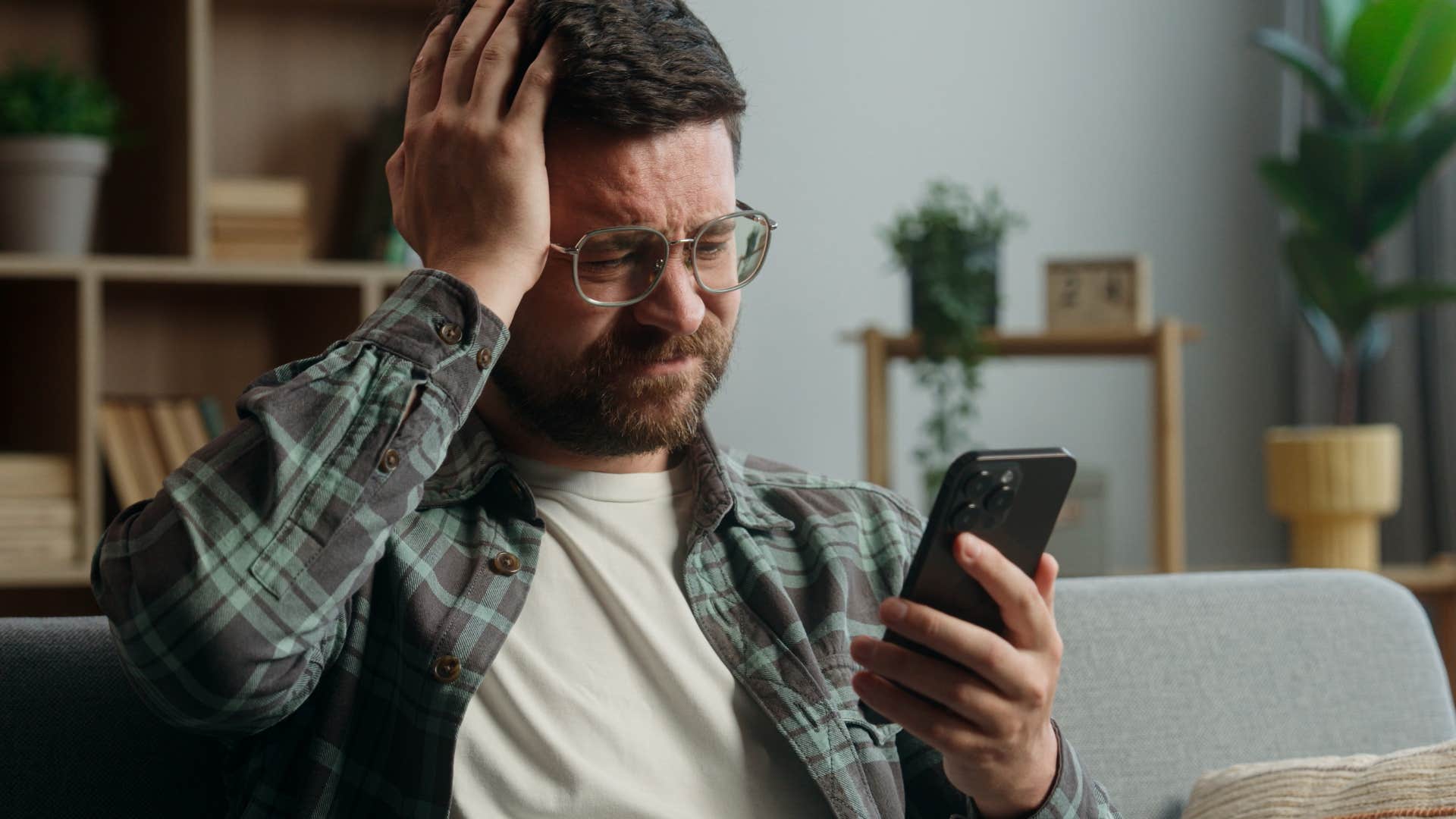 MAYA LAB | Shutterstock
MAYA LAB | Shutterstock
Whether it's responding to comments on social media, picking up a phone call, or answering a text message, digital communication is one of the things emotionally exhausted people start avoiding completely when they're struggling internally.
It's not surprising that emotionally exhausted individuals, who are already struggling with information overload in their brains, are less likely to respond to people on their phones, because they also spark the stress and anxiety they're trying to avoid.
Like a 2020 study explains, the over-exposure of phone users' experience of information online — from text notifications to social media pressures — can reduce the likelihood of them responding to people actually reaching out. They're overwhelmed, so they avoid it altogether.
5. Self-care
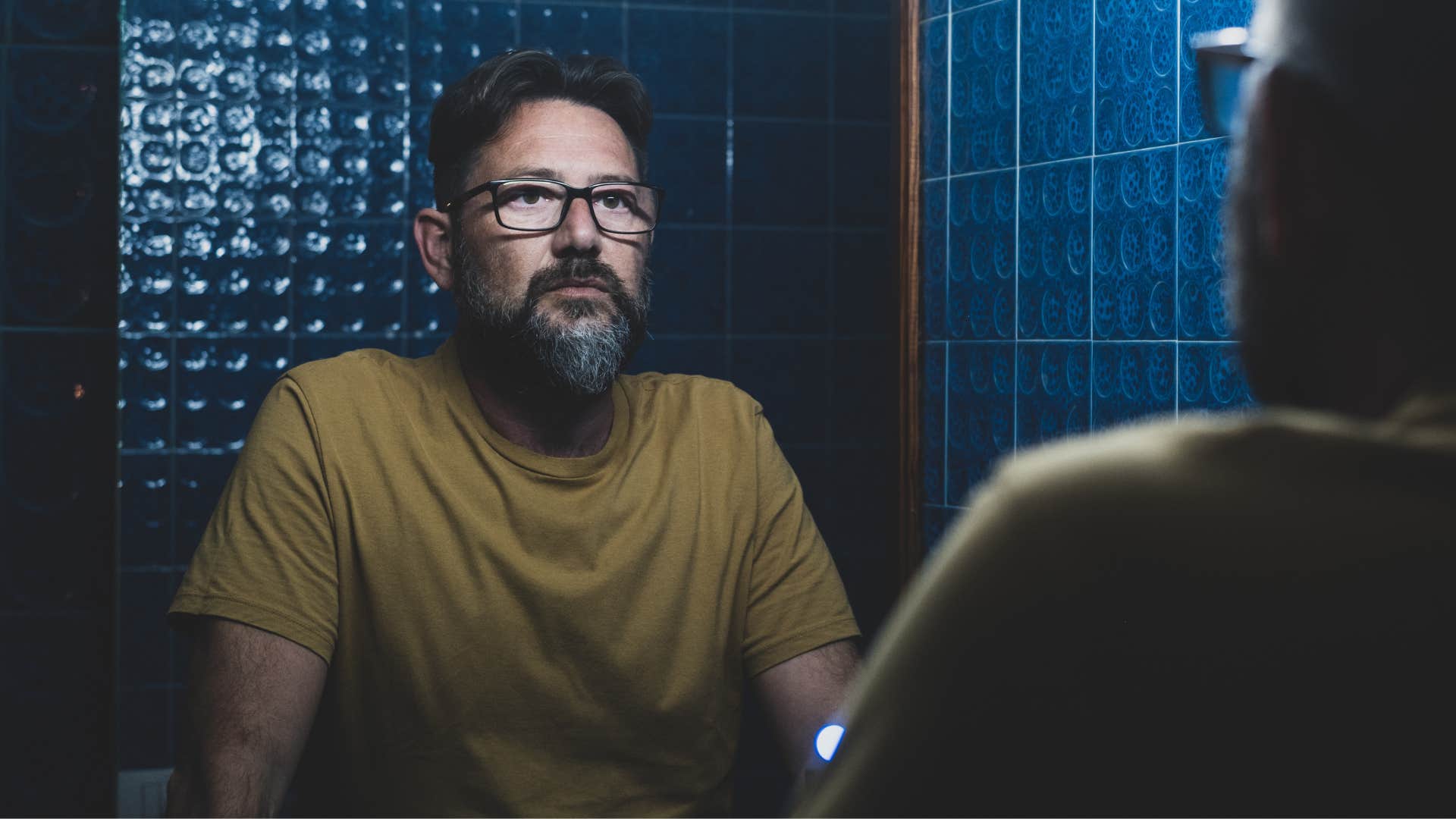 Perfect Wave | Shutterstock
Perfect Wave | Shutterstock
Whether it's going to bed at a decent time, caring for their basic hygiene, or having productive conversations with loved ones — especially if that discussion is them asking for help — many people experiencing emotional exhaustion start avoiding these things completely.
According to a study from Frontiers in Public Health, self-care — especially things like intentional rest and sleep — can be a profound means to combat symptoms of depression, even in people experiencing consistent emotional burnout.
It can help to curb the chronic stress of a job or even the constant anxiety of a toxic relationship. To some extent, it protects a person's ability to advocate for themselves, rest, and experience clarity.
6. Work
 LightField Studios | Shutterstock
LightField Studios | Shutterstock
According to a Slack report, people who experience burnout from working long hours and taking on unrealistic workloads struggle with productivity. They're not actually reaping the benefits of being a perceived "overachiever," but setting themselves up for emotional exhaustion, chronic stress, and lacking productivity.
That's why work is one of the historically popular things emotionally exhausted people start avoiding completely. Even though they often grow burnout with the intention of getting more done, now they may be getting even less than their baseline workload completed, struggling with emotional turmoil and overcompensation in their brains.
7. Thinking about the future
 fizkes | Shutterstock
fizkes | Shutterstock
As a survival mechanism for stress, anxiety, or fear, the "fight-or-flight" response can often keep people stuck in the present moment, unable to think about the future or the big picture. When someone is experiencing emotional exhaustion, the information overload in their brains and internal turmoil they're experiencing could be keeping them stuck in this state — unable to consider future plans, other people, or the big picture of their lives.
According to psychology professor David A. Clark, it's generally the feelings of hopelessness and despair that contribute to future thinking being one of the things emotionally exhausted people start avoiding completely. They feel helpless, insecure, fearful, and anxious, unsure of how to take the very next step, let alone plan their futures beyond the month or year.
8. Dealing with their emotions
 PeopleImages.com - Yuri A | Shutterstock
PeopleImages.com - Yuri A | Shutterstock
Even though it's ironic that people struggling from internal turmoil and stress at the hands of their complex emotions would actively suppress and avoid them, that's exactly what people in this situation feel forced into doing. It's a coping mechanism, even though it's misguided and often causes more harm than good.
While this tendency toward emotional suppression may help to mediate the strong feelings of negative experiences and emotions, like a study from the Journal of Personality and Social Psychology suggests, it also robs people of their ability to experience positive ones.
Of course, this experience is often just in the short-term — it's impossible to suppress emotions, trauma, and feelings without dealing with them at some point. Unfortunately for people actively suppressing these complex emotions, they often come out at much more inconvenient times in the future.
9. Vulnerability
 PeopleImages.com - Yuri A | Shutterstock
PeopleImages.com - Yuri A | Shutterstock
Despite the range of physical and mental health benefits harboring strong social connections can spark, vulnerability is one of the things emotionally exhausted people start avoiding completely. They hardly have the emotional capacity to deal with their own emotions, let alone support, help, and be present with other people in healthy ways.
That's part of the reason people experiencing chronic stress, anxiety, and internal turmoil feel isolated and grapple with feelings of loneliness, according to a 2023 study.
10. Their hobbies and passions
 Okrasiuk | Shutterstock
Okrasiuk | Shutterstock
Experiences like apathy and anhedonia, the loss of interest and energy in the things they once enjoyed, are some of the things emotionally exhausted people go through when they don't mediate their depressive or stressful symptoms.
Whether it's hobbies, social connections, self-care, or personal passions, they grow less interested in exerting energy into things that once used to fulfill them and add value to their lives. Even if it may seem like a coping mechanism to conserve energy and emotional well-being, it often keeps them stagnant in a cycle of emotional turmoil, isolation, and lacking energy.
11. Worldly events and news
 Tonuka Stock | Shutterstock
Tonuka Stock | Shutterstock
According to the American Psychological Association, it's common for people — especially in our culture of constant media accessibility online and through social media — to experience media overload that negatively affects their mental health and general well-being.
Whether it's keeping up with news headlines or being pressured into advocacy at every corner, it's one of the experiences that many people who are chronically online face. However, many people who are already emotionally exhausted — whether media originally plays a role in sparking this experience or not — may avoid these triggers altogether.
Whether it's isolating themselves from discussion and engagement with others online or just not keeping up with media that used to interest them, these are some of the things emotionally exhausted people start avoiding completely.
Zayda Slabbekoorn is a staff writer with a bachelor’s degree in social relations & policy and gender studies who focuses on psychology, relationships, self-help, and human interest stories.

